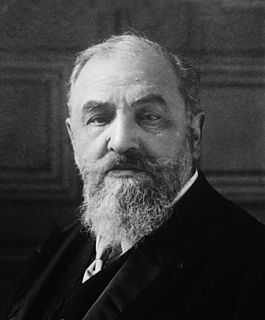A Quote by Andrew Jackson
Every man is equally entitled to protection by law. But when the laws undertake to add... artificial distinctions, to grant titles, gratuities, and exclusive privileges—to make the rich richer and the potent more powerful— the humble members of society—the farmers, mechanics, and laborers, who have neither the time nor the means of securing like favors to themselves, have a right to complain of the injustice of their government.
Quote Topics
Related Quotes
What are wanted ...are not Constitutions and Revolutions, nor all sorts of Conferences and Congresses, nor the many ingenious devices for submarine navigation and aerial navigation, nor powerful explosives, nor all sorts of conveniences to add to the enjoyment of the rich, ruling classes... but one thing only is needful: the knowledge of the simple and clear truth ...that for our life one law is valid - the law of love, which brings the highest happiness to every individual as well as to all mankind.
The principle of Parliamentary sovereignty means neither more nor less than this, namely, that Parliament thus defined has, under the English constitution, the right to make or unmake any law whatever; and, further, that no person or body is recognised by the law of England as having a right to override or set aside the legislation of Parliament.
Our government is the potent, the omnipresent teacher. For good or for ill it teaches the whole people by example. Crime is contagious. If the government becomes a lawbreaker, it breeds contempt for law; it invites every man to become a law unto himself; it invites anarchy. To declare that in the administration of the criminal law the end justifies the means - to declare that the Government may commit crimes in order to secure the conviction of a private criminal - would bring terrible retributions.
Must the citizen ever for a moment, or in the least degree, resign his conscience to the legislator? Why has every man a conscience, then? I think that we should be men first, and subjects afterward. It is not desirable to cultivate a respect for the law, so much as for the right. The only obligation which I have a right to assume is to do at any time what I think right... Law never made men a whit more just; and, by means of their respect for it, even the well-disposed are daily made the agents of injustice.
Gun laws are an attempt to nationalize the right of self-defense. Politicians perennially react to the police's abject failure to prevent crime by trying to disarm law-abiding citizens. The worse government fails to control crime, the more the politicians want to restrict individuals' rights to defend themselves. But police protection in most places is typical government work - slow, inefficient, and unreliable.
To the free man, the country is the collection of individuals who compose it, not something over and above them. He is proud of a common heritage and loyal to common traditions. But he regards government as a means, an instrumentality, neither a grantor of favors and gifts, nor a master or god to be blindly worshipped and served.

































